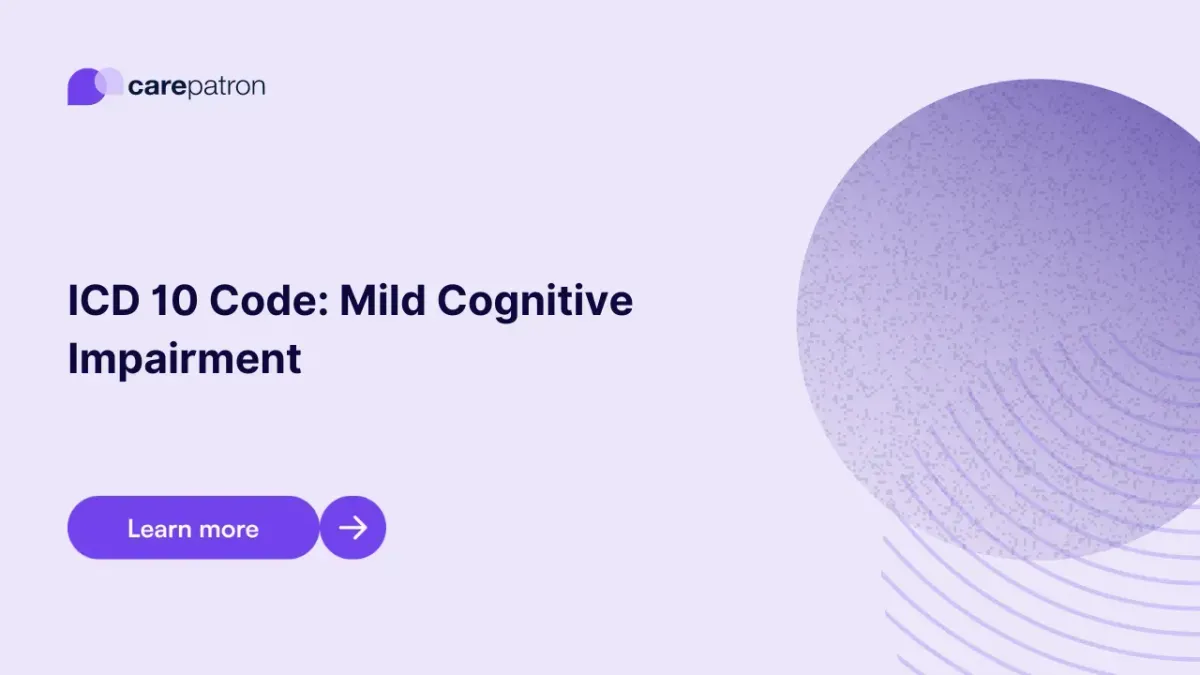
Mild Cognitive Impairment ICD-10-CM Codes
Read this short guide to learn about mild cognitive impairment ICD codes you can use.
Use Code
Commonly asked questions
A lot of things can cause mild cognitive impairment. From a mental health standpoint, anxiety, depression, and stress can cause it. From a physical health standpoint, conditions such as sleep disorders, neurological problems like traumatic brain injuries and brain tumors, urinary tract infections, substance or alcohol use disorder, and using certain medications can cause it.
We experience mental decline as we age, but that’s different from mild cognitive impairment. Even if we experience mental decline as we age, if it’s not caused by an underlying condition or a neurological disorder, we still retain our ability to recognize things and maintain our intelligence, and our long-term memory should be intact. Sure, we might forget some names or misplace things here and there, but that’s normal.
Having mild cognitive impairment due to an underlying condition will impact us (but again, not severely) because it interferes with our capability to remember things we should remember without problem, like conversations we just had minutes ago, something read a few minutes ago, or plans we made.
Not necessarily. It depends on what the mild cognitive impairment is a symptom of. Most people should return to their normal cognition appropriate for their age after being treated or after a short while. Mild cognitive impairment can worsen over time and develop into dementia if it is a symptom of a neurological problem.
EHR and practice management software
Get started for free
*No credit card required
Free
$0/usd
Unlimited clients
Telehealth
1GB of storage
Client portal text
Automated billing and online payments
